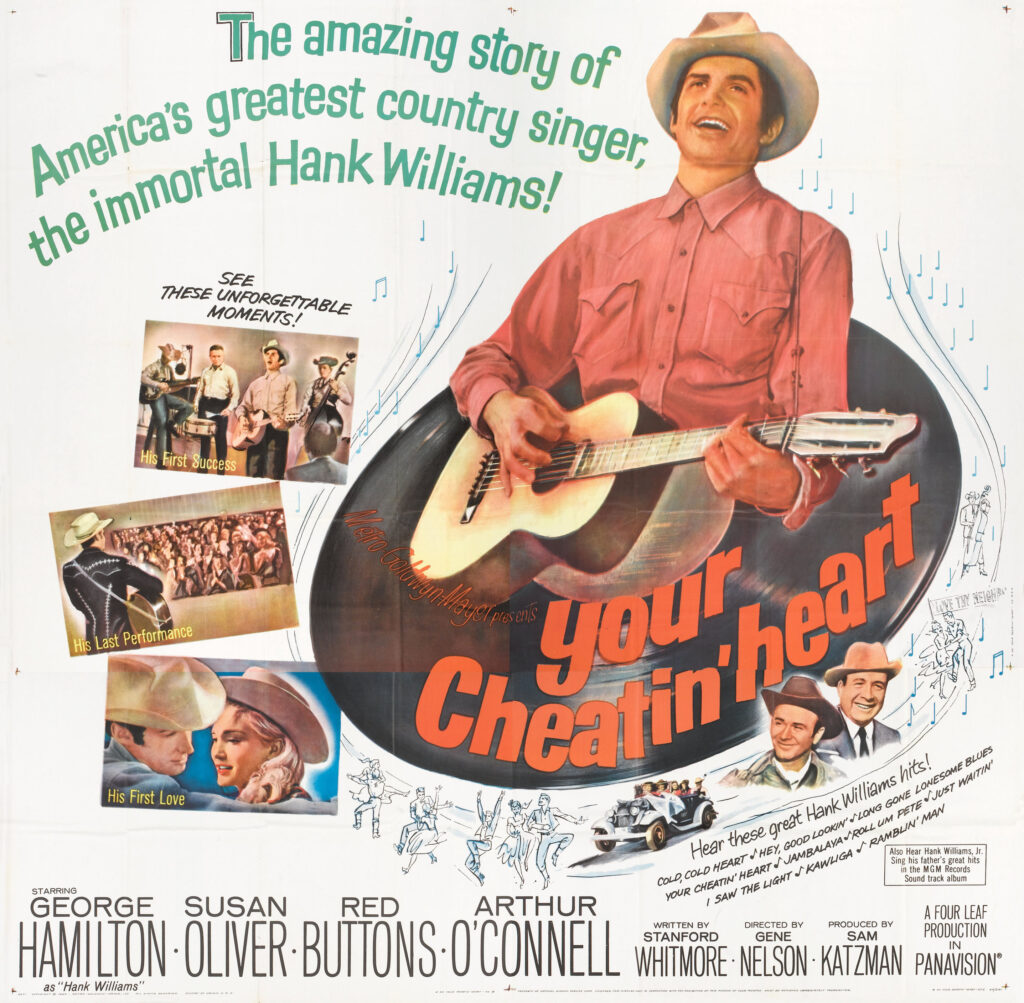A Lamentation of Betrayal That Resonates Through Time

Hank Williams’ poignant ballad, “Your Cheatin’ Heart,” is a quintessential narrative of heartache that has carved its legacy into the very grain of American music history. Released posthumously in 1953, the song reached No. 1 on Billboard’s Country & Western Best Sellers chart, a testament to the enduring resonance of its sorrowful storytelling. Featured on the album Moanin’ the Blues, this track stands as a cornerstone of Williams’ illustrious, albeit tragically brief, career, encapsulating his unparalleled ability to convey raw emotion through simple yet profound lyricism.
The genesis of “Your Cheatin’ Heart” is shrouded in the somber aura of Hank Williams’ personal turmoil. Born from a period rife with personal challenges and marital strife, it is said that Williams composed this heart-wrenching ode in response to his crumbling relationship with his first wife, Audrey Sheppard. The lyrics paint a vivid picture of betrayal and regret, themes that were intensely autobiographical for Williams, whose own life was marked by romantic turbulence and an unyielding pursuit of artistic truth.
The simplicity of its musical composition—a melancholic blend of steel guitar and fiddle that epitomizes the traditional country sound—serves as the perfect vessel for its lyrical depth. The opening lines deliver a stark message, laying bare the universal pain of infidelity: “Your cheatin’ heart will make you weep.” The song’s repetitive structure mirrors the cyclical nature of heartache, an emotional loop from which there seems no escape. Williams’ voice, with its characteristic nasal twang, imbues each word with authenticity and despair, drawing listeners into his world of sorrow and introspection.
At its core, “Your Cheatin’ Heart” is more than just a personal lament; it is a cultural artifact that speaks to the broader human condition. Its appeal lies not only in its relatability but also in its unadorned honesty—a reflection of Williams’ masterful songwriting ability to capture complex emotions with disarming simplicity. This ability has secured the song’s place not only in the pantheon of country music but also in the broader tapestry of American musical heritage.
Despite—or perhaps because of—its deeply personal origins, “Your Cheatin’ Heart” resonates with listeners from all walks of life. The song’s universal themes have allowed it to transcend its era, becoming a timeless anthem for anyone who has ever grappled with feelings of betrayal and loss. Its influence extends beyond country music, inspiring countless artists across genres who seek to emulate its sincerity and emotional impact.
In reflecting on Hank Williams’ legacy through this song, we are reminded not only of his profound impact on country music but also of his enduring ability to touch hearts with unvarnished truthfulness. “Your Cheatin’ Heart” remains a poignant reminder that even in our darkest moments, there exists an art form capable of capturing and articulating our deepest emotions—a gift that continues to reverberate through generations.